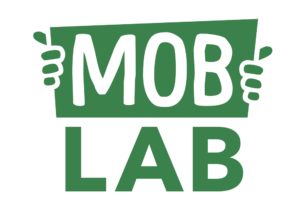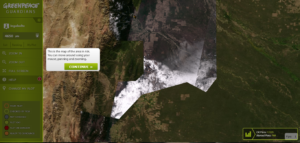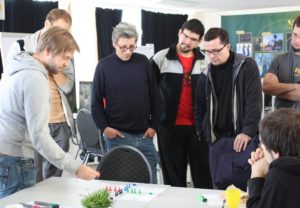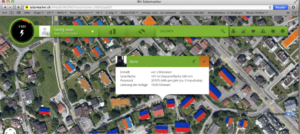SANT HILARI SACALM, Spain – It’s rare during a conference session on developing digital games that participants get teary-eyed, even cry, but that’s exactly what happened when Edgard Gouveia shared his work during Greenpeace’s Digital Mobilisation Skillshare (GPDMS) Feb 6.
The urbanist and architect has spent the last 13 years developing games that empower people to see the beauty in their communities, share their dreams for the community, and then act on them.
While these community development outcomes could happen without a game, Edgard says it’s the game-effect that mobilises people.
In games, people aren’t afraid to move outside their comfort zone. In games, everyone starts at the same level and are motivated to play to their highest potential.
Edgard was inspired to create the online-offline game Oasis after a storm rocked Brazil damaging thousands of buildings across the state of Santa Catarina. Three months after the crisis, many of the towns were still in disrepair, with people feeling helpless, living in shelters and the government grappling with the scale of aid needed.
Oasis was a call to all of Brazil to bring back the joy of life to these communities by rebuilding the cities in three month’s time.
Players of Oasis could join three teams consisting of on-the-ground support (firemen, builders), online technical expertise (engineers, architects, planners) as well as community members wanting to participate by cooking food or joining the action teams.
Each community was asked a simple question: What could we build that would bring back the joy of life?
In 12 cities, Oasis players built 45 different public spaces in one week.
“One community had been waiting 20 years for someone to build a park. They did it themselves in three days,” Edgard told the 10 people attending his session.
Since then, Oasis, has expanded across the globe, with more than 90 communities adopting the game in the first year.
Now, Edgard is pushing his own boundaries with his most ambitious game for change yet.
When developing Oasis and other social change programs, Edgard noticed a trend: young people were always the most motivated and often the champions of community beautification. Why not equip them with a competition to save the world?
Play the Call aims to mobilise two billion people in next four years to save the planet. The game challenges kids and youth to become “star heroes,” and use their secret powers to be a force for good.
Young people become community influencers, demonstrating by doing, and recruiting family and their networks to join in planting community gardens and trees, riding bikes and building sustainable communities.
Seeing the game is aspiring to save the world, Edgard built it from the same intention, for free, and with the support of 3,000 people from 32 countries who offered their skills to co-create the game.
Play the Call is now moving into its 6-month prototyping stage and could use volunteer developers working in Ruby on Rails, as well as ambassadors to introduce the game to schools and youth groups.
Videographers who can document the transformation taking place on the ground can help raise awareness and promote the game.
If the game reaches its goal of recruiting two billion people, Edgard says it would create a tipping point for community empowerment and sustainability across the globe.
Participants attending the session say there were struck by the philosophy of Edgard’s games.
“He’s not focusing on the bad, he sees the beauty and the dreams that people have for a better life and a better world,” says Christian Gyr, youth support centre coach at Greenpeace International.
Christian adds Greenpeace can play a catalyzing role in supporting movements like Play the Call.
Edgard’s session on gaming for change was one of 13 concurrent open sessions held during the third day of GPDMS. Check out live tweets and coverage here.
Stay Connected: @Instituto_Elos
Do you have an innovation in mobilisation and people-powered campaigns? Share it with Mob Lab by contacting moblab@greenpeace.org.




